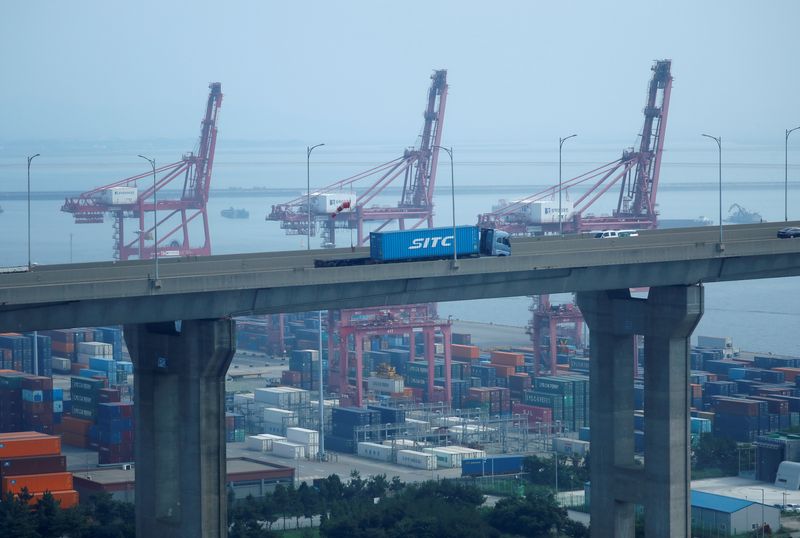South Korea’s exports falling due to situation in China
2022.12.28 00:29

South Korea’s exports falling due to situation in China
Budrigannews.com – According to a poll conducted by Reuters on Wednesday, demand from China has yet to recover from the loosening of COVID-19 restrictions, which is why South Korea’s exports are likely to continue their decline for a third consecutive month in December.
According to the median prediction made by 12 economists, the country’s outbound shipments were anticipated to have decreased by 10.1% in December compared to the same month a year earlier.
After a loss of 14.0% in November, which was the largest in two and a half years, and a loss of 5.8% in October, that would be the third month in a row that saw declines year-over-year.
According to Park Sang-hyun, chief economist at HI Investment and Securities, “South Korea’s exports are under pressure from declining exports to China, where the economy still remains sluggish even after easing of its COVID-19 restrictions,” as well as weak sales of IT products, primarily semiconductors.
Furthermore, “exports are likely to continue the falling trend for the time being,” as a result of the impending global economic slowdown.
Since last month, China has eased some of its most stringent restrictions to combat COVID-19.
Compared to the same time last year, South Korea’s exports decreased by 8.8% during the first 20 days of December. For the seventh month in a row, shipments to China fell 25.5%, outpacing gains in shipments to the United States and the European Union.
In the meantime, it was anticipated that imports would have decreased by 0.6% in December, following a 24-month gain in November.
The trade balance is expected to remain negative for the ninth month in a row. Additionally, it is on track for its first and largest annual deficit in 14 years.
Full month to month exchange information is planned for discharge on Sunday, Jan. 1, at 9 a.m. (0000 GMT).
More Rise in house prices in U.S. is over
The country’s consumer price index was also expected to be 5.0% higher in December than it was a year ago, the same as it was in November, when annual inflation fell to a seven-month low.
Economists anticipated that factory output would have decreased by 0.8 percent month-over-month seasonally adjusted, which would be less than 3.5 percent in October and the slowest decline in likely its five-month decline streak.








